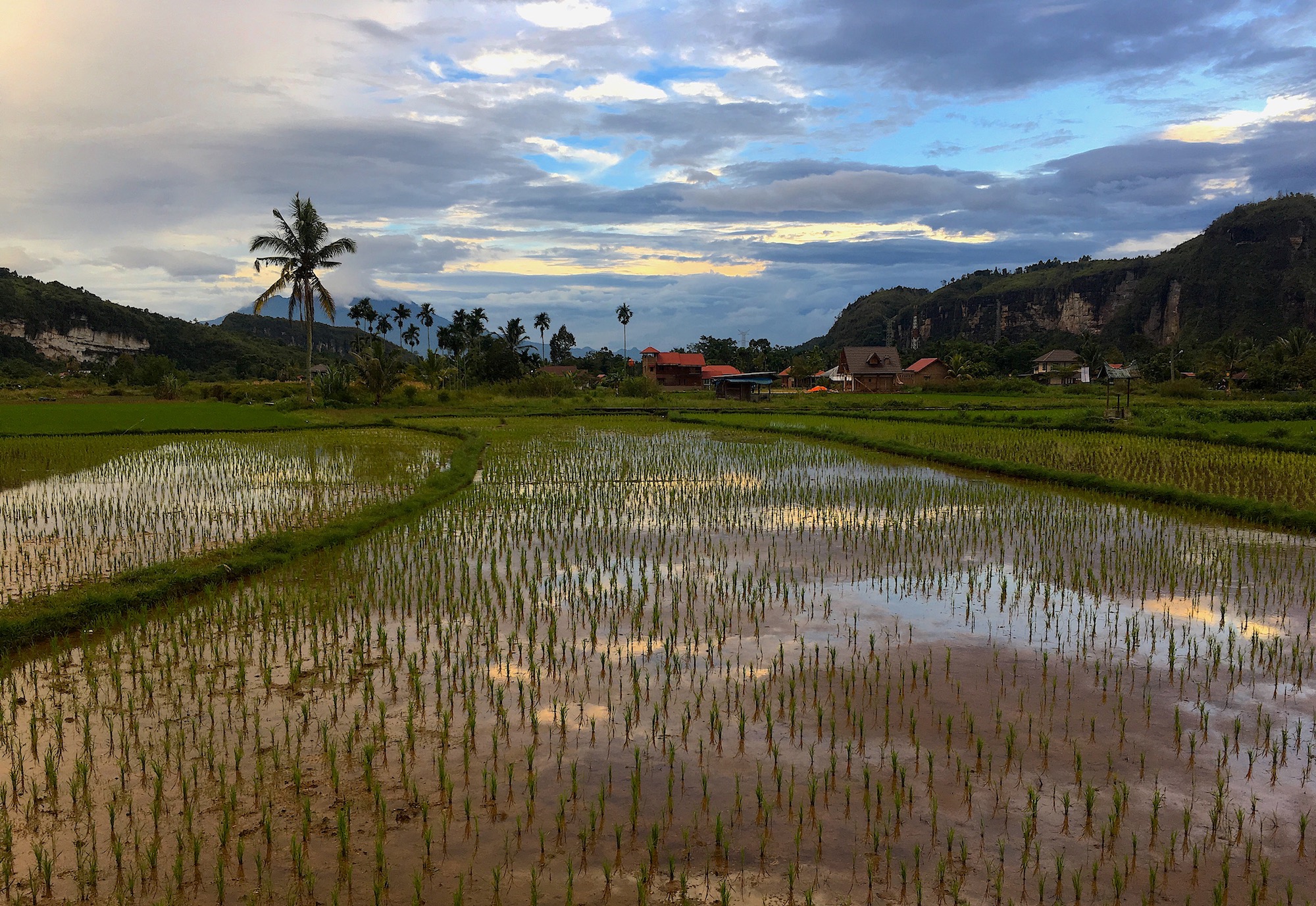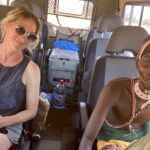I spent a week riding a motorbike through the equatorial highlands outside the Sumatran hill-station town of Bukittinggi. My overnight destinations included the waterfall-studded Harau Valley and the freshwater caldera of Lake Maninjau.
Motorcycling in this part of the world is a crash-course in road intuition. One doesn’t study urban traffic patterns here so much as learn to sense them – and road-situations that seemed baffling or even terrifying from the back-seat of a share-taxi on my first day in Sumatra scarcely fazed me by my third day of troubleshooting traffic via motorcycle. There’s a subtle logic to how things work: You internalize traffic patterns, ride defensively, plan your next several moves, and constantly use your horn to let people know where you are. If in doubt, accelerating assertively – just like the locals do – is safer than passively waiting for the road to make space for you.
 Once you get out of the towns and into the countryside, motorcycle travel is (when it’s not pouring rain) a sensual joy, an ongoing mélange of sights and sounds and smells. Motorcycling through this landscape helped me appreciate how much splendor – verdant rainforest, dormant volcanoes, sleepy mountain market-towns – can be contained in one small region of one off-the-beaten-path Indonesian island. It feels like a person could spend a year on Sumatra, or a decade in the other big, far-flung islands of Indonesia, and still not experience everything the country has to offer.
Once you get out of the towns and into the countryside, motorcycle travel is (when it’s not pouring rain) a sensual joy, an ongoing mélange of sights and sounds and smells. Motorcycling through this landscape helped me appreciate how much splendor – verdant rainforest, dormant volcanoes, sleepy mountain market-towns – can be contained in one small region of one off-the-beaten-path Indonesian island. It feels like a person could spend a year on Sumatra, or a decade in the other big, far-flung islands of Indonesia, and still not experience everything the country has to offer.
Travel here continues to be cheap – simple rooms for $8 – $15 a night; simple meals for $2 or less a plate; $5 per day for motorbike rental. Itinerant travel aside, it feels like the kind of place you might visit just to chill out in a single beautiful place and recharge for a month or two: swimming in a lake (or the ocean) each morning; going for long hikes or motorbike rides; learning a bit of the local language and culture; eating healthy; waking up with the sun and turning in early; sitting in a hammock and reading all the books you’ve been meaning to read. All for a fraction of the price you’d spend on food, entertainment, and rent/mortgage back home (let alone a commercial tourist-resort in some other, high-traffic part of the tropics).
The Minangkabau people who live in this part of Sumatra have a fascinating culture. Not just in events like the pacu jawi cow races, but in the way they have come to mix Islam with older cultural practices – traditions they fought to protect in a war against fundamentalist Acehnese Muslims in the 19th century. Perhaps most notable is that the Minangkabau are the world’s largest matrilineal society: the women here own the property, which is passed down from mother to daughter; women arrange the marriages, as per tradition, and husbands are only tolerated in the house under certain conditions, typically returning to their sisters’ houses to sleep.
One travel-oriented coming-of-age ritual for Minangkabau males is “merantau” – which literally means “emigration,” but in practice is something more along the lines of “dude, go make yourself useful.” During this time young men are expected to leave home for a distant and unfamiliar place – typically to learn new skills, find work, and (hopefully) achieve a measure of success before they are allowed to return full-time to their village of origin.
Note: “Dispatches” are short vignettes, profiles, and mini-essays written and posted from the road, often in tandem with my Instagram account. For more full-formed writing, check out my book Marco Polo Didn’t Go There, or the Essays or Stories archives on this site. I don’t host a “comments” section, but I’m happy to hear your thoughts via my Contact page.





